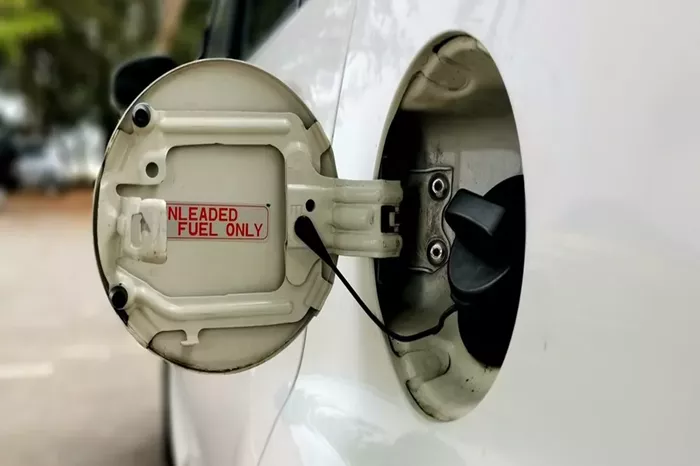Leaded gasoline, also known as lead-added gasoline, is a historic fuel variant that played a significant role in the development of internal combustion engines throughout the early to mid-20th century. This article delves into its definition, historical significance, and the reasons behind its eventual phase-out.
Definition of Leaded Gasoline
Leaded gasoline is a type of petroleum-based fuel that incorporates tetraethyl lead (commonly abbreviated as TEL) as an additive. This addition of lead compounds was aimed primarily at improving the performance of gasoline by increasing its octane rating and reducing engine knock. The development of leaded gasoline represented a pivotal advancement in automotive technology during the early 20th century.
History of Leaded Gasoline
The history of leaded gasoline traces back to the 1920s when Thomas Midgley Jr., an engineer working at General Motors, sought a solution to address the issue of engine knocking in automobiles. Engine knock, or detonation, occurs when the air-fuel mixture ignites prematurely in the combustion chamber, causing undesirable vibrations and potential damage to the engine.
Midgley Jr. experimented with various additives and eventually discovered that tetraethyl lead effectively mitigated engine knock. This discovery led to the widespread adoption of leaded gasoline across the automotive industry. By the 1930s, leaded gasoline became the dominant fuel type in the United States and other parts of the world, supporting the development of engines with higher compression ratios and improved performance capabilities.
Despite its benefits for engine performance, the use of leaded gasoline raised concerns over its environmental and health impacts. The combustion of leaded gasoline releases lead particles into the atmosphere, contributing to air pollution and posing significant health risks to humans and wildlife.
See also: What Octane Is Premium Fuel?
Phasing Out of Leaded Gasoline
The phase-out of leaded gasoline began in the 1970s due to mounting evidence of its detrimental effects on public health and the environment. In 1975, the United States Environmental Protection Agency (EPA) initiated regulations that effectively banned the use of leaded gasoline in vehicles equipped with catalytic converters, which were becoming standard to comply with stricter emission standards.
The introduction of catalytic converters was a pivotal advancement in automotive technology as it facilitated the reduction of harmful emissions such as carbon monoxide, nitrogen oxides, and hydrocarbons. These devices were incompatible with leaded gasoline because lead compounds would irreversibly deactivate the catalysts within the converters, rendering them ineffective.
While the phase-out of leaded gasoline was largely successful in the automotive sector, certain niche markets continued to use leaded gasoline for specific applications. Aircraft, racing cars, farm equipment, and marine engines were exempt from the ban due to the unique requirements of their engines and the absence of catalytic converters in their design.
Over time, advancements in engine technology and alternative fuels further contributed to the decline of leaded gasoline. Unleaded gasoline, which became widely available as a safer and cleaner alternative, gradually replaced leaded gasoline in most applications.
Environmental and Health Impacts
The environmental and health impacts of leaded gasoline were profound and multifaceted. Lead emissions from vehicles using leaded gasoline contaminated the air, soil, and water sources, posing significant risks to human health. Lead exposure is particularly harmful to neurological development in children, leading to cognitive impairments and behavioral disorders.
In addition to human health concerns, leaded gasoline also had adverse effects on wildlife and ecosystems. Lead particles deposited into the environment through exhaust emissions accumulated in soil and water, posing risks to plants, animals, and aquatic life.
Global Perspectives on Leaded Gasoline
The use and regulation of leaded gasoline varied significantly across different countries and regions. While many developed nations phased out leaded gasoline by the late 20th century, some developing countries continued to use leaded gasoline due to economic factors and infrastructure limitations.
International efforts to phase out leaded gasoline gained momentum through initiatives led by organizations such as the United Nations Environment Programme (UNEP) and partnerships with automotive manufacturers and fuel suppliers. These efforts aimed to support developing countries in transitioning to unleaded gasoline and adopting cleaner technologies to mitigate environmental and health risks associated with leaded gasoline use.
Legacy and Lessons Learned
The legacy of leaded gasoline serves as a stark reminder of the unintended consequences that can arise from technological advancements in the absence of comprehensive understanding of their long-term impacts. The phase-out of leaded gasoline underscored the importance of proactive environmental and public health policies, technological innovation, and international collaboration in addressing global challenges related to air quality and sustainable development.
Conclusion
The transition away from leaded gasoline marked a pivotal moment in the history of automotive and environmental regulation. While its use contributed to advancements in engine performance, the widespread adoption of unleaded gasoline and catalytic converters represented a critical step toward reducing air pollution and protecting public health. As society continues to confront new environmental challenges, the lessons learned from the era of leaded gasoline remain relevant in shaping policies and practices aimed at achieving a cleaner and more sustainable future.
Related topics:

